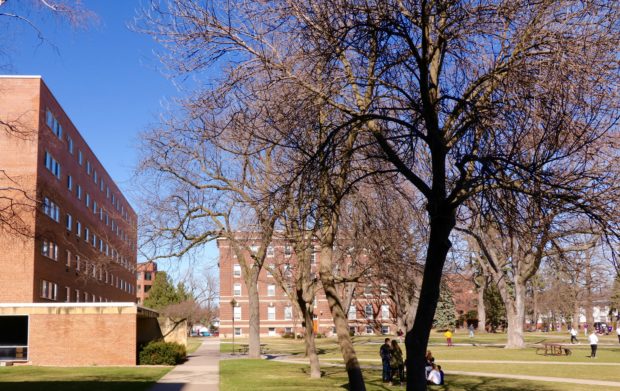
St. Thomas has never required students to live on campus, but a recent trend of benchmark schools initiating residency requirements has sparked conversation within the university.
Director of Residence Life Aaron Macke said that although 95 percent of first-year students live on campus at St. Thomas, there is no requirement for them to do so. He explained that when a school has a residency requirement, there can be many different reasons for doing so.
“There’s an economic piece, there’s an off-campus rental market piece, there’s neighborhood issues, and there’s this whole living and learning, holistic learning for the student that (schools) want to try to encourage more of,” Macke said. “Some schools are also doing it for just pure revenue.”
For St. Thomas, Macke said the main reason for the free choice of housing options is the availability within the St. Thomas community.
“One of the initiative of being in an urban area is that you can provide your students flexibility of where they live,” Macke said. “We have a very vibrant rental market around our campus. It’s very attractive. It’s a nice neighborhood, and it’s a relatively safe neighborhood.”
Though it has been uncommon for urban schools like St. Thomas to have residency requirements, Macke said he is starting to see some of those schools starting to impose new requirements.
“Historically, urban institutions like us, around metropolitan areas, have not done residency requirements,” Macke said. “Now, what we’ve seen in the last three to ten years, is some urban schools moving to two-year residency requirements.”
Macke said of the nine schools that the university compares itself to, half of them have started a residency requirement recently. This trend has started a conversation at St. Thomas as to how a residency requirement would impact the students and school.
“It’s sparked a conversation to say, ‘Hey, should we be looking at this too, and what does it mean?’” Macke said. “We started asking the question — we’ve asked it now really for about the last four or five years, but we started asking it more intentionally the last year — about should St. Thomas have a residency requirement.”
After gathering feedback, Macke said people have shown interest in the different ways a residency requirement would positively impact our campus.
“There might be an exciting piece to having students living and learning and growing and developing on campus,” Macke said. “It would likely be a revenue generator for the university.”
However, Macke said the university does not want to deter students with a requirement.
“What we want to make sure we don’t do, if we do a requirement, is price people out of St. Thomas,” Macke said. “We recognize that students are choosing St. Thomas because of the flexibility they have … there’s a lot of paths that students are taking to get through St. Thomas, and we don’t want to do something that pushes them into one path that isn’t sustainable for them.”
First-year student Mary Kate Hertzel lives on campus, and she said that a residency requirement would not have impacted her decision to come to St. Thomas.
“I’m already staying in Morrison next year,” Hertzel said. “Freshman and sophomore year you’re still kind of trying to figure it all out.”
Junior Amelia Northrup, who lives off-campus, said that though she doesn’t think a residency requirement would be a deal-breaker for anyone interested in St. Thomas, she could see how it could impact those who want flexibility in their options.
“For me personally it wouldn’t have been that big of a deal because at the time I wanted to live on-campus, but I know for sure there are people who don’t want to be required to do that,” Northrup said. “Not everyone wants to pay to live on-campus, they can find better deals off-campus.”
Macke said the university’s main priority within these discussions is not revenue opportunity, but value to the students.
“We want to only do it if it’s something that really gives value to the education of our students.”
Kassie Vivant can be reached at viva0001@stthomas.edu



Mr. Macke mentioned the real reason the university wants this policie implemented: “It would likely be a revenue generator for the university.”